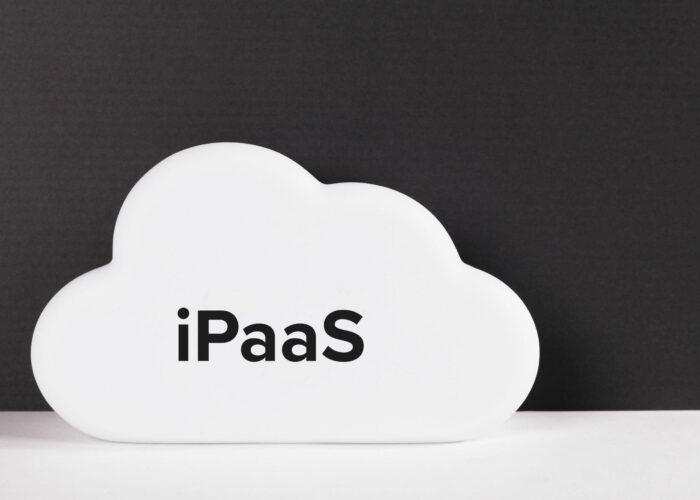Innovation is key to organisational sustainability. A combination of business and technological practices can act as a catalyst towards this ideology. WSO2, a renowned open-source integration platform, could be one such accelerator towards digital change for many organisations. Especially when factoring in location and geography, it’s hard to miss that many countries today are keen on reforming their IT infrastructures. Tanzania is one such country; through its unwavering digital transformation efforts, it hopes to attain economic growth, a competitive edge on an international scale, equal access to services for all citizens, improved infrastructure, operational efficiency, and resource conservation. In this article, we will explore the role of WSO2 for Tanzanian companies, why it might be the best integration solution to lead the country to its expected goals, and why Chakray is the best WSO2 Partner in Tanzania.
|
1. The IT integration landscape in Tanzania
In recent years, the IT scene in Tanzania has witnessed an overhaul. The increased adoption of new technologies and solutions has resulted in a consistent and significant evolution in the country’s digital infrastructure. However, to get to its current state of digitisation, Tanzania had to confront these common integration challenges:
Common Integration Challenges
- A lack of uniformity in data across disparate systems. This could result from a failure to implement data standards when an organisation begins generating records.
- Not enough APIs used to connect different systems.
- Use of legacy systems that need to be replaced for better efficiency, but lack documentation, making them harder to upgrade.
- Allocating the right budget for all components involved in an integration project, including network, storage, infrastructure (cloud, on-premises, or hybrid), and other technological requirements.
- Lack of IT system integration expertise in the organisation’s workforce, which may require additional training and investment in human resources.
Apart from this, certain regions in Tanzania may have limited access to IT resources such as a stable internet connection or a reliable supply of electricity.
Main Integration and IT infrastructure Opportunities in Tanzania
Despite these roadblocks, Tanzania has discovered many opportunities to nurture its IT infrastructure across various sectors such as healthcare, finance, education, and government. IT integrations are essential to any digital transformation initiative.
They are utilised in the following ways in these typical integration scenarios:
- IT integration is a core aspect of the healthcare industry. Since critical patient information is stored in electronic health records (EHR) systems, a secure transaction of data is crucial to the day-to-day operations of the sector. Integration is a foolproof way to achieve a trustworthy exchange of data between healthcare providers and professionals.
- Financial systems are integrated in Tanzanian organisations to elevate payment processes. Some common systems are accounting software, payment gateways, invoice managers, and tools that enable financial reporting and analysis.
- Supply chain management is another key area where IT integration finds purpose. Tanzanian companies can connect systems that are central to overseeing processes such as procurement and logistics. An Enterprise Resource Planning system (ERP) is a core aspect of a supply chain system integration. This gives companies better visibility into the complex collaborations between suppliers and partners.
- As more stores migrated to the online realm, e-commerce became a booming trend in IT integration initiatives across the globe. Tanzania is no different in this regard. Systems dealing with orders, inventory management, and transactions are interlinked to ensure smooth e-commerce platforms.
- Most countries have shifted the data and processes of their governmental bodies to web-based applications, data sources, and services. Securely integrating highly confidential citizen records between different departments as well as with online portals that are accessed by the civilians can unify government processes and streamline service delivery.
- IT integration supports the growth of the education sector in Tanzania by fortifying it through online resources. This includes multimedia content, interactive learning experiences, digital libraries, online assessments, assignment submissions, and so on. All of these can be achieved by employing integration to reduce manual work and simplify data sharing through a virtual environment.
These are some of the many use cases of IT integration in Tanzania today. With further focus on digital-forward strategies, these use cases can expand to include more technologies and innovative methodologies in the future.
2. An overview of WSO2 and its capabilities
WSO2 is an integration software vendor whose platform can be used to build solutions centred around application development, integration, API management, and identity and access management. Their comprehensive suite of products empowers businesses to seamlessly integrate applications, efficiently manage APIs, and fortify the execution of user authentication and authorisation flows, all while ensuring top-notch security measures.
WSO2 provides a range of products that are categorised as follows:
- AppDev (Application Development): Under AppDev, WSO2 offers tools such as Choreo Internal Developer Platform for deployment and governance, API Manager for enterprise-grade API management, Choreo iPaaS for user-friendly integrations, Micro Integrator for a cloud-native integration runtime, Ballerina programming language for coding integrations, and Choreo Cloud Native App Developer for dedicated mobile and web app development.
- IAM (Identity and Access Management): WSO2 offers solutions like Asgardeo for a customer IAM SaaS solution, Identity Server for IAM pain points, and Private CIAM Cloud for a fully managed private cloud service. These products help businesses simplify development, improve security, and enhance identity management across applications and services.
We have covered different WSO2 components extensively in past articles. A comparison of two similar technologies,WSO2 and Mulesoft, can be found here. For a comprehensive deep-dive on how we can help you with the technology, find our dedicated WSO2 page here
3. Benefits of implementing WSO2 for Tanzanian companies
Through WSO2’s service offerings, Tanzanian companies can realise their potential and obtain benefits in four ways:
- Firstly, WSO2’s API management capabilities enable Tanzanian businesses to expose and manage their APIs, paving the way for logically-sound integrations between partners, suppliers, and customers. This enhances collaboration and enables the development of well-oiled applications and services.
- Secondly, WSO2 provides identity and access management solutions that help Tanzanian companies ensure secure and efficient authentication, authorisation, and user management. This is particularly crucial in safeguarding sensitive customer data and complying with data protection regulations.
- Moreover, WSO2’s enterprise integration capabilities enable Tanzanian organisations to integrate disparate systems, applications, and data sources. This can create positive changes within the organisation such as streamlined operations, improved efficiency, and enhanced decision-making.
- Finally, WSO2’s open-source nature provides cost-effective solutions for Tanzanian businesses. You can also subscribe to a flexible licence as per the requirements of your integration.
Check it out: Why is WSO2 the best platform to drive digital transformation?
4. Success stories: the role of WSO2 for Tanzanian companies
Now that we know how WSO2 can shake up the digital and business topography in Tanzania, let’s take a look at the platform in action through 3 success stories from Chakray, the WSO2 Partner in Tanzania, across different industries. They clearly illustrate the positive impact of WSO2 for Tanzanian companies and other regions in Africa
A government of Africa leverages WSO2’s product suite to modernise its systems and processes and boost citizen experience
The main focus of this project was to enhance the country’s administrative ecosystem through a common e-government platform paired with a separate system for national identity and citizen registrations. Some concerns of the project were secure communication, technological sustainability, accuracy and protection of public data, agility of services to users through pioneering solutions, etc. The outcomes of the scenario matched these expectations by:
- Creating a common online portal, enhancing service delivery.
- Removing irrelevant point-to-point solutions.
- Using the agile model for a fast and customer-centric delivery of results.
- Connecting different departments of the government.
- Saving time for citizens trying to access public services and data.
To read more, click here: The Government of Africa | Case Study
A telecommunications company enhances customer experience through digitised products and services
The main focus of this project was to create an API and integration management solution using a middleware platform. This could help expose APIs to internal and external stakeholders according to the GSMA Mobile Money API Specification. The company’s main systems were to be integrated with a comprehensive platform. The solution used was Telco-Connect, an integration solution primarily built to simplify complex digital interconnections in the telecommunication industry. WSO2 API Manager and Micro Integrator were specifically used to execute the solution. The outcomes of the scenario were:
- Scalability based on customer needs.
- Reduced downtime and failure of systems.
- Agile and reusable implementation of APIs.
- Telco-connect provided innovative solutions to expose its APIs to internal and external applications securely.
- Faster development of new features leading to increased customer satisfaction.
To read more, click here: Africa telecommunications | Case Study
A healthcare organisation delivers better patient services by handling the complexities of the sector through WSO2 solutions
The main focus of this project was to improve payer and provider interoperability through APIs like FHIR and HL7, which conform to healthcare standards. It also needed to meet the Patient Access Final Rule compliance deadline, which stresses that patients must be able to view important records through FHIR APIs within one business day. The outcomes of the scenario were:
- Third party applications can register via WSO2 Open Healthcare. Developers of these applications can also access a developer portal where they can subscribe to FHIR APIs.
- Patients should be able to access the application of their choice through the internet.
- The payer organisation should be able to verify user identity and garner consent from patients to send their data across these third party applications. Patients must also be able to reciprocate with their consent.
WSO2 made these operations easier since it offers a library of pre-built templates to construct FHIR APIs performing various functionalities. Its low-code editor also allows customers to create these APIs quickly and with ease. Ultimately, WSO2 ensured that the project met regulatory compliance measures without sacrificing time-to-market and usability.
Are you searching for a WSO2 partner in Tanzania? Look no further: get in touch with us instead
5. Steps to implement WSO2 for Tanzanian Companies and how to find the right partner
Before Tanzanian companies can make any headway with their WSO2 procurement, they must understand what their integration journey with the technology entails. They must also possess a clear end goal. We’ve broken down these considerations into three digestible steps with the aim of increasing the feasibility of WSO2 for Tanzanian companies.
Create a roadmap for your WSO2 implementation
Start by analysing your business objectives. Ask yourself which functions and processes need to be streamlined in order to meet your organisational targets and ultimately increase profits. Doing this will help you narrow down specific areas of your business that may require the assistance of WSO2.
Next, create a realistic timeline of your WSO2 implementation. This includes taking into account all the required resources—skilled team members, infrastructure, and budget—and how they will affect the length of the integration project. Lastly, predict possible risks that may arise during different phases of the project and establish backup plans or strategies to tackle each one. With this kind of meticulous planning, Tanzanian companies can gain remarkable returns from the WSO2 platform.
Selecting the right products and components of WSO2 based on your objectives
With a better understanding of your company’s business objectives, you can outline a set of integration requirements and how the WSO2 technology can fulfil them. Think about whether you only need a new identity and access management solution or a full-scale, organisation-wide integration.
Then, identify which WSO2 products can integrate and enhance your systems as needed. For instance, WSO2 API Manager would be your go-to for anything pertaining to your company’s governance of API lifecycles. Make yourself familiar with the best practices involved in implementing these components so that they can cooperate with your existing systems.
Lastly, the introduction of WSO2 for Tanzanian companies must be forward-thinking enough to accommodate any future developments that these businesses might undergo. This will propel the country’s commercial ecosystem towards continuous advancement and success.
Reaching out to a WSO2 partner in Tanzania and integration experts
WSO2 provides various resources like documentation and tutorials to help companies understand the technology before they commit to it. However, if organisations still require additional guidance, they can reach out to WSO2’s network of partners.
Choosing a reputable WSO2 partner in Tanzania is beneficial for various reasons. A WSO2 partner can help you gauge your requirements better based on your industry, region, and the opportunities these factors present. It also helps companies form a sense of community around the technology, especially since partners conduct multiple events such as webinars, workshops, surveys, and so on.
6. Chakray: the WSO2 partner in Tanzania and worldwide
Chakray offers unrivalled support for WSO2’s range of products. As a platinum partner of WSO2, we offer tailor-made solutions for companies worldwide, whether that be API management, Identity and Access Management (IAM), or enterprise integration. Our seasoned professionals are engaged with each and every project they undertake, combining their technical expertise with their knack for innovation to produce the best results for your organisation.
We also provide training for WSO2 customers. We have also successfully designed and deployed WSO2-based solutions for enterprises of all sizes with diverse necessities.
Due to these sought-after qualities, Chakray emerges as an ideal choice for implementing WSO2 for Tanzanian companies. Chakray is committed to learning more about the unique challenges faced by the country’s businesses so that we can leverage WSO2 to build specialised, cutting-edge solutions that align with their objectives. Our ability to produce tangible results will not only guide individual organisations that reach out to us, but also enrich the country at large. This is why we stand out as a dependable WSO2 partner in Tanzania.
7. Conclusion
WSO2 for Tanzanian companies has many positive implications for future integration efforts in the country. By tapping into WSO2’s timeless capabilities, companies can manoeuvre through today’s dynamic business landscape, one that heavily relies on ephemeral IT systems. WSO2 is a robust platform that can act as a bridge between these systems without giving out. With WSO2 as their chosen vendor, Tanzanian businesses can grow and persevere even during globally uncertain times.
Are you an organisation based in Tanzania? If you’re interested to find out more about this technology and what it means for you, don’t hesitate to contact us, your trusted WSO2 partner in Tanzania.


Need help defining and implementing your integration strategy for your company?
Talk to our experts!
contact us about integration



